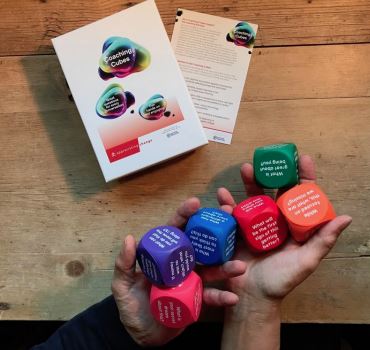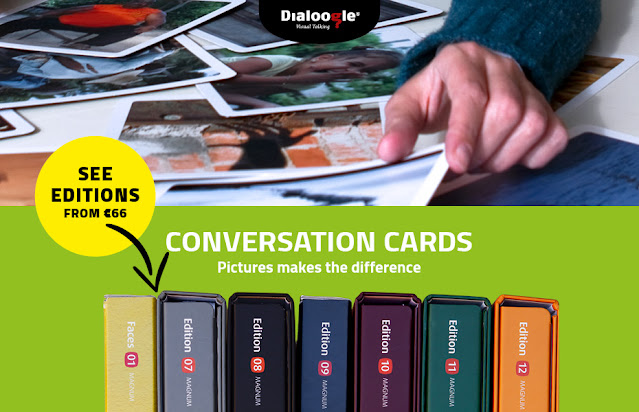Try out coaching with these colorful and soft Coaching Cubes

Coaching Cubes with 36 questions on 6 different theme cubes: Explore new areas of discussion with Coaching Cubes Colorful foam dice that feature positive coaching questions and they are great for promoting discussion and unblocking stuck conversations with your coachees. One of the most effective techniques to help someone develop their own thinking is to ask them questions. Good questions prompt new thoughts, bring previous experiences to bear on present dilemmas, shed new light on the issue, and prompt plans for action. This activity consists of six coloured, soft cubes with positive coaching questions on them. The cubes are designed to be rolled as dice, with each cube having its own theme relating to the coaching process. The Coaching Cubes follow this model. The PRISMM COACHING CUBES Model The PRISMM coaching model combines systemic consulting, appreciative inquiry and positive psychology to create a powerful coaching process. A colourful, tactile, innovative addition to any coac


